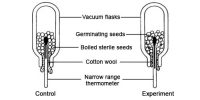Protein for Body
Protein is used in every sole cell in our body and is vital for building muscle mass, sustaining neurological role, aiding in digestion and helping to balance hormones naturally. Eating protein creates a process in the body known as thermogenesis, which requires the body to expend more energy (calories) in order to digest food. According to its sources, protein can be divided into animal protein and plant protein. Fish, meat, eggs, milk and all other dairy products are derived from animals and are known as animal protein. On the other hand, pulses, nuts, kidney, beans etc. are derived from plants and are called plant protein.
Functions of protein
- The main function of protein is to develop cells. For example, muscles, bones and blood cells of our body are mainly composed of protein. Protein produces heat in our body.
- Proteins are involved in the production of antibodies which protect us from different diseases
- Lack of protein causes kwashiorkor among children. Due to this disease, the normal growth of the body is hindered. If the growth of children is slowed down they are likely to suffer from malnutrition.
- They do most of the work in cells and are required for the structure, function, and regulation of the body’s tissues and organs.
- Antibodies, another protein, help your body fight infection. For each antigen that enters your body, you have a separate and distinct antibody to fight it.
















